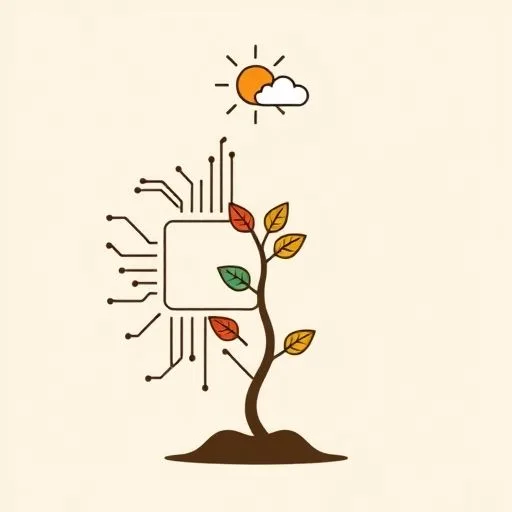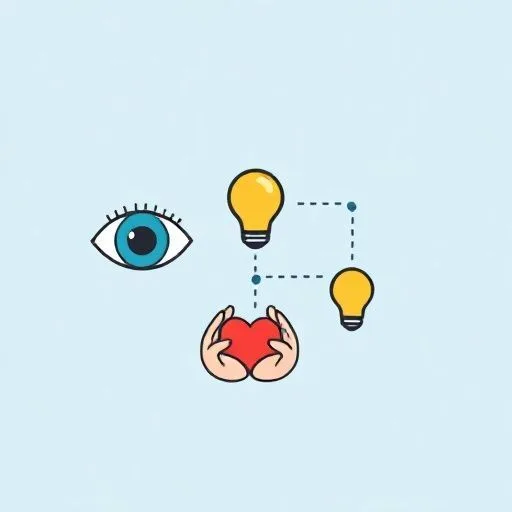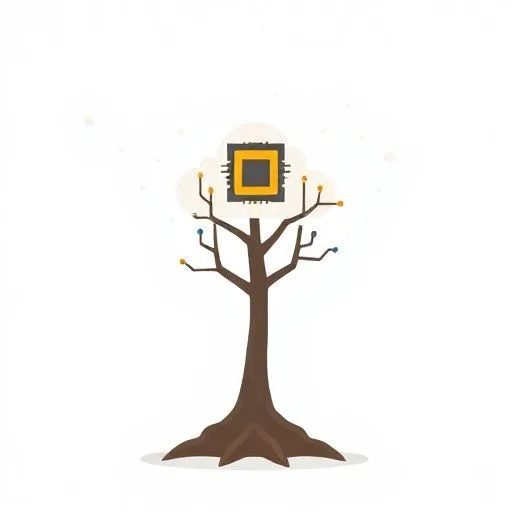
This morning, before my daughter’s school bell rang just 100m down the street, I caught myself wondering how AI could help me notice her shy smile amid the morning rush… In a world where AI analyzes data at lightning speed, one leadership quality remains beautifully human: self-awareness. It’s not about being the smartest, but the most self-aware. With 76% of employees seeing leadership as crucial for AI integration, the secret is deep self-knowledge for authentic leadership. This essential leadership skill helps navigate the complexities of human connection.
The AI Paradox: More Tech, More Need for Humanity?

Sometimes I picture AI crunching numbers faster than I can chase after my seven-year-old, but our real edge? Being totally aware of ourselves—even our quirks. Surprisingly, employees sometimes trust AI more than human bosses in certain leadership areas. This isn’t a threat but an opportunity. AI handles tedious tasks, freeing leaders for human connection, empathy, and self-awareness, transforming good leaders into extraordinary ones.
When AI manages schedules and routine decisions, what’s left? Meaningful work: understanding team dynamics, recognizing unspoken concerns, and making people feel genuinely seen. That’s where self-awareness becomes your leadership superpower. Just like mixing kimchi and maple syrup-drizzled pancakes on our weekend brunch, AI and our humanity make an unexpectedly perfect blend.
Three Human Capabilities AI Can’t Replicate: Awareness, Compassion, Wisdom

So, what happens when my daughter asks why robots don’t get butterflies in their stomach? That’s where awareness, compassion, and wisdom step in—our human-only toolkit. Research highlights three uniquely human capabilities leaders must hone as AI grows: awareness, compassion, and wisdom. Awareness comes first, foundational to everything. Self-aware leaders understand their strengths, limitations, and impact on others.
They’re like skilled captains, knowing their ship and the sea—aware of capabilities and changing waters. This awareness builds stability and trust, especially when navigating technological change. Developing this self-awareness is crucial for effective leadership.
Practical Strategies for Your Self-Awareness Muscle

Developing self-awareness is about practical, daily habits for leadership resilience. Embrace the power of the pause: before responding or deciding, breathe and consider your impact. It’s a simple practice beneficial even for seasoned leaders.
Second, seek feedback regularly with genuine curiosity. The Journal of Applied Psychology shows self-aware leaders are more open to feedback and adaptable. They see feedback as valuable data, not criticism, crucial for leadership growth.
Embracing feedback is a cornerstone of developing robust leadership skills. Regularly asking for and integrating constructive input allows for continuous improvement and a deeper understanding of how your actions influence your team and organizational dynamics.
Balancing Authenticity with Emotional Intelligence for Leaders

Authenticity is valued, but self-awareness shows that unchecked ‘realness’ can hinder leadership. The magic lies in balancing authenticity with emotional intelligence. Self-aware leaders know when to share vulnerability and when to maintain boundaries.
Leadership isn’t saying everything felt in the moment, but ensuring words serve the team, mission, and situation. It’s being authentically you versus being effectively you.
Building Your Leadership Legacy in the AI Era

As we move forward in this AI-driven world, thriving leaders will double down on their humanity, using AI to enhance, not replace, self-awareness. Imagine using technology for efficient feedback, accurate team analysis, and more mental space for reflection.
This isn’t about competing with technology—it’s about complementing it. While AI handles the ‘what’ and ‘how,’ you focus on the ‘why’ and ‘who.’ Technical skills may open doors, but self-awareness keeps people following you through them.
Your Next Step: The Continuous Self-Awareness Journey

Developing self-awareness is a continuous journey, not a destination. Start small: an intentional pause before speaking, or asking one team member for specific feedback this week.
Research confirms these resilience, emotional self-awareness, and lifelong learning skills will be highly valued by 2030. The future of leadership isn’t outsmarting AI; it’s out-humaning it, starting with knowing yourself to truly know and lead others. That’s a superpower worth developing.
Source: Why Self-Awareness Is The Top Leadership Skill In The AI Era, Forbes, 2025/09/09 20:00:12
